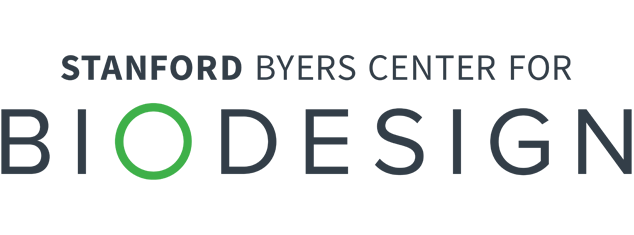Biodesign and COVID-19
Over the past weeks, we have had a significant number of inquiries about what the Stanford Biodesign community is doing—or might be able to do—in response to the COVID-19 pandemic.
At this time, we are directing our students and fellows to respect the fact that health providers need to focus on delivering care and emphasizing that all in our community follow local, state, and federal guidelines about how to minimize the spread of the disease. A number of our alumni and faculty are on the front lines of this effort—from Zach Edmonds who is helping lead the COVID-19 efforts at El Camino Hospital locally, to Vic McCray who flew to New York to run a COVID-19 positive ICU in Queens, to Balram Bhargava (the Founding Director of Biodesign India) who has assumed a central role in the Indian federal government in directing that country’s response.
At Stanford Biodesign itself, our focus remains on education and equipping aspiring innovators to tackle these sorts of challenging issues. Although this is not an ideal time for observation in the clinical setting, there is clearly a tremendous opportunity to look for needs as we try to understand how to respond to the virus from both a physical and mental health perspective. Our hope is to deploy future teams of trainees to address important unmet needs related to infectious disease detection, mitigation, and management as part of learning and practicing the biodesign innovation process.
In parallel, our current Innovation Fellows are undertaking a needs finding initiative in three specific pandemic-related areas:
- Optimization of isolation/quarantine
- Prevention of transmission and personal protective equipment
- Surge capacity for ventilation and critical care
These projects, as as well as other COVID-19-related needs, projects, and resources gathered from our community, can be viewed in this downloadable spreadsheet meant to foster collaborations and spark ideas.
Additionally, in partnership with Department of Bioengineering, Stanford Biodesign has launched the Coulter COVID-19 Rapid Response grant program. This is a special round of urgent grant funding for innovative therapeutics, devices, diagnostics, or digital health technologies with the potential for a near-term impact on the current crisis.
Finally, some of you have wondered about technologies originated at Stanford Biodesign that may have relevance for the epidemic. You may recall, for example, that Matt Callaghan and colleagues developed a low-cost ventilator, anticipating the potential for use in a pandemic. Matt reports that he has connected with appropriate federal authorities to help identify pathways to move the technology forward. Other class and fellowship alumni are currently working on projects related to COVID-19 and we will update you about these in the next weeks and months.
With your emails and calls, we have been touched and impressed by the extraordinary community we have in and around Stanford Biodesign. There is no doubt that this extended group will play a significant role in continuing to develop innovative health technologies and other important solutions to the threats posed by pandemics like COVID-19. We look forward to further dialogue—and action—together.
Stay safe and well,

Paul Yock
Director, Stanford Biodesign
